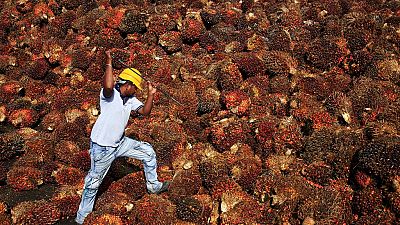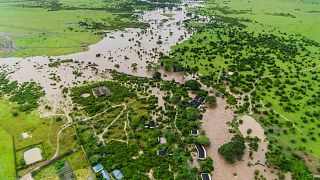Agriculture
The production of palm oil for use in cosmetics, food, and fuel has become increasingly controversial in recent years.
This is due to large-scale clearing of rain forests in some countries in order to make space for palm oil monoculture, and reduction of orangutan habitat.
However, engineers and scientists from two British universities believe they have a solution that would put an end to this problem.
Palm oil is an edible vegetable obtained from palm tree fruits. The substitute developed by a team from the universities of York and Bath, alongside industry partners Croda, C-TECH and AB Agri, is based on a yeast grown using sustainable-sourced waste feed stocks, such as miscanthus, rapeseed straw, seaweed, and wheat straw.
Lead researcher Dr. Christopher Chuck, from the University of Bath, said they are looking for a wide range of feed stocks.
The researchers have discovered that the yeast known as Metschnikowia pulcherrima can be grown under non-sterile conditions on a variety of agricultural and food wastes.
And with little changes, the yeast can be made to produce a thick oil with virtually identical qualities like palm oil.
The team is concentrating on improving the genetic understanding of the yeast and scaling up the fermentation.
According to Chuck, it takes between three and five days to grow the yeast in a bio-reactor.
“Just by changing the environmental conditions or the strain we can actually direct the oil towards different applications, so we can use the yeast to produce a palm oil substitute. So it has a biomechanical composition very similar to palm oil and therefore it has the same physical possibilities, so it’s as thick as palm oil. We can also direct the yeast towards more rapeseed oil type – potential use for biofuels.”
Although many people are not aware of palm oil, it can be found in around 50 percent of all consumer goods.
Palm oil is very convenient for manufacturers, however, it comes at a huge cost to the world’s forests.
The team is confident they would be able to create a direct replacement for oil, and reduce the environmental issues associated with its production.














02:08
Gunman attack in north-central Nigeria: death toll climbs to 150
11:14
Rwanda Walks Away: what’s behind the Central Africa rift? [Business Africa]
02:20
Morocco seeks to preserve traditional cooking and recipes through UNESCO project
Go to video
World Bee Day: bees under threat, but solutions exist, report finds
Go to video
Indonesia hosts prestigious specialty coffee event for first time
01:58
Nigerian farmers struggle as climate change dries up water sources